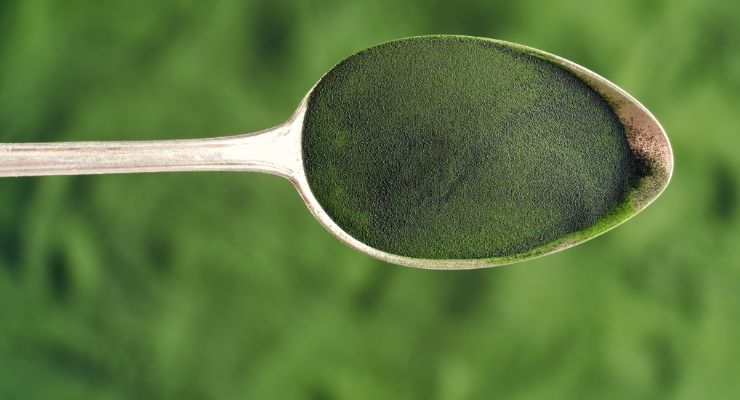01.03.24
Chlorella and spirulina, two of the most commercially-available species of algae which are rich in protein, can serve as a viable alternative to animal-based proteins, according to University of Exeter researchers publishing in The Journal of Nutrition.
A human clinical study conducted by the team evaluated how the two forms of algae stimulated myofibrillar protein synthesis, compared with more well-studied fungal-derived protein. The researchers tracked myofibrillar protein synthesis rates and blood amino acid concentrations at resting and post-exercise.
A total of 36 young adults participated in the trial, in which they were administered a 25-gram protein dose in the form of a drink from fungal-derived mycoprotein, spirulina, or chlorella. They participated in a bout of one-legged resistance leg exercise in order to evaluate potential differences between post-exercise and rested states.
Compared to the mycoprotein and chlorella, spirulina had the strongest peak response in blood amino acid concentrations. There were no differences between the groups in terms of how protein ingestion increased myofibrillar protein synthesis, which were evaluated through muscle biopsy.
Before this study, little was known about how these two protein-rich forms of algae stimulated muscle protein synthesis – these new findings are the first of their kind to demonstrate that they support it to an equivalent extent as a high-quality, mushroom-derived protein.
The authors also noted that the nature of spirulina and chlorella as whole foods could have potentially modulated the anabolic response, generating additional variables to consider in future studies. The two types of algae contain unique forms of dietary fiber, antioxidants, carotenoids, vitamins, and omega-3 fatty acids, which could have had an effect on anabolic signaling pathways.
“The findings of the present work significantly add to the evidence base for the anabolic properties of nonanimal-derived protein sources, introducing novel data on a largely unexplored subclass of nonanimal-derived proteins,” the authors concluded.
A human clinical study conducted by the team evaluated how the two forms of algae stimulated myofibrillar protein synthesis, compared with more well-studied fungal-derived protein. The researchers tracked myofibrillar protein synthesis rates and blood amino acid concentrations at resting and post-exercise.
A total of 36 young adults participated in the trial, in which they were administered a 25-gram protein dose in the form of a drink from fungal-derived mycoprotein, spirulina, or chlorella. They participated in a bout of one-legged resistance leg exercise in order to evaluate potential differences between post-exercise and rested states.
Compared to the mycoprotein and chlorella, spirulina had the strongest peak response in blood amino acid concentrations. There were no differences between the groups in terms of how protein ingestion increased myofibrillar protein synthesis, which were evaluated through muscle biopsy.
Before this study, little was known about how these two protein-rich forms of algae stimulated muscle protein synthesis – these new findings are the first of their kind to demonstrate that they support it to an equivalent extent as a high-quality, mushroom-derived protein.
The authors also noted that the nature of spirulina and chlorella as whole foods could have potentially modulated the anabolic response, generating additional variables to consider in future studies. The two types of algae contain unique forms of dietary fiber, antioxidants, carotenoids, vitamins, and omega-3 fatty acids, which could have had an effect on anabolic signaling pathways.
“The findings of the present work significantly add to the evidence base for the anabolic properties of nonanimal-derived protein sources, introducing novel data on a largely unexplored subclass of nonanimal-derived proteins,” the authors concluded.




























